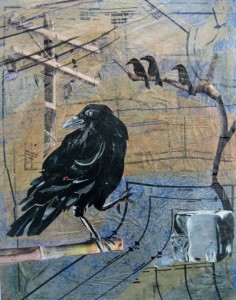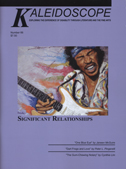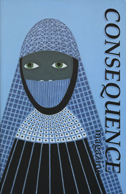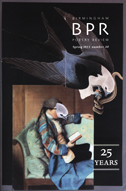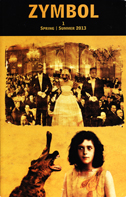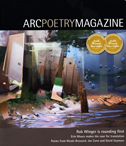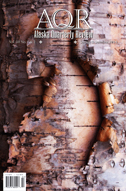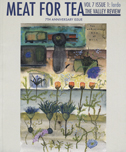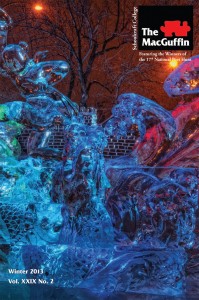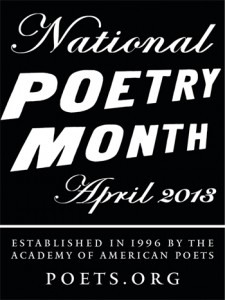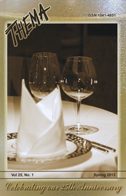Zymbol is a new print magazine that publishes twice a year, in March and September, and welcomes all sorts of genres and forms. Editor Anne James says, “We’re happy to consider any genre or medium that the submitter feels belongs to, or shares a connection with, Symbolism or Surrealism. As an editor, I’d rather read three times as many submissions to find that amazing, description-defying piece than to miss out on seeing it because we’ve set our guidelines too strict.” However, because they are a print magazine, James says, “we can’t accommodate submissions of someone’s videotaped fire-eating homage to Salvador Dalí.”
In the issues you can expect to find a variety of writing. “We pride ourselves on the diversity of voices we publish,” says James, “and I don’t just mean in terms of demographics. We have everything from the whimsical to the downright sinister. Any reader who daydreams and questions reality can find a sense of camaraderie in the pages of Zymbol.”
The magazine gets its title from the way symbols are “the key in Symbolist and Surrealist works.” James says, “We wanted our name to pay homage to historical influences, while signaling a drive for the future, hence the ‘Z.’” James worked learning the industry at St. Petersburg Review with Elizabeth Hodges, “an amazing mentor and friend who showed [her] it’s still possible for an independent literary magazine to thrive.” James says that she feels there is a “vacancy in the world of art and literature for a publication that is both surreal and grounded in experience. Too much contemporary literature veers off into absurdity and flights of fancy, but what excites me is the absurd out of the commonplace, the magic and mystery in our minds and our realities.”
Along with James there is a student editor, Adria Holmes of Endicott College, along with Alex O’Fhailghigh, who has been helpful in defining the editorial focus, and Marta Ferrer, who helps with art submissions and helping recruit international contributors.
The first issue features art by Nuncio Casanova, Anastasia Hager, and Mette Norrie; an essay by Marta Ferrer Gómez; poetry by Carol Alexander, Flower Conroy, William Doreski, Lou Gallo, Anastasia Hager, Anne James, Natalie Kinsey, Anthony Madrid, Erin Lyndal Martin, Ben Nardolilli, Kevin O’Sullivan, Mary Ellen Phillips, Matt Schumacher, J.J. Steinfeld, Tim Suermondt, Allison Willard, and Bill Wolak; and fiction by Jennifer Hollie Bowles, Cary Groner, Zachary Kaplan-Moss, Larry Lefkowitz, Ilya Lyashevsky, John McCaffrey, Harry Posner, and Evan Morgan Williams.
While they are only available in print right now, they hope to develop an e-reader version as soon as possible. Along with that goal, they hope to “get bookstores and other venues enthusiastic about doing some wacky readings and performances, because there’s nothing like sharing an experience with a room full of people.”
Right now, they are looking for submissions that will match up with “what is shaping up to be a very dark and stormy Autumn/Winter issue.” James says this will be a nice contrast to the Spring/Summer issue. She advises that although they read year-round, submissions now through May have the best shot at getting into the next issue. They take submissions online through their website. But “if you have something crazy that the submissions manager won’t eat,” you can send it directly to James at [email protected].
 First place: Siamak Vossoughi [pictured], of San Francisco, CA, wins $1500 for “The X-250.” His story will be published in the Fall 2014 issue of Glimmer Train Stories.
First place: Siamak Vossoughi [pictured], of San Francisco, CA, wins $1500 for “The X-250.” His story will be published in the Fall 2014 issue of Glimmer Train Stories.
